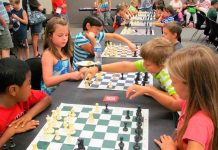ПЛАН – КОНСПЕКТ УРОКА АНГЛИЙСКОГО ЯЗЫКА
В 9 КЛАССЕ
Учитель Борисенко М.А.
15.12.2013года
Тема: “MASS MEDIA. TELEVISION”
Цель урока: Развитие коммуникативной компетенции учащихся на базе изученной лексики и грамматического материала по изучаемой теме,
расширение общего кругозора; углубление знаний учащихся о средствах массовой информации в России и Великобритании.
Обучающие задачи: активизировать изученную лексику по теме;
совершенствовать навыки аудирования с целью получения необходимой информации;
совершенствовать навыки коммуникативной компетенции учащихся;
развивать умения учащихся выделять главное, логично и последовательно излагать мысли на иностранном языке.
Развивающие задачи: развивать способность анализировать, обобщать и сравнивать;
самостоятельно строить речевое высказывание; общаться в диалоге;
развивать мышление, зрительную память и воображение
Воспитательные задачи: показать многообразие средств массовой информации в нашей жизни; научить ориентироваться в них,
повышать мотивацию к изучению английского языка.
Оборудование: магнитофон, проектор, аудиозаписи текста, диалогов, объявлений; диск с записью фрагментов урока;
Тип урока: комбинированный
Техники и приемы, используемые на разных этапах урока:
Презентация “Mаss Media ” в Power Point
Ролевая игра
Работа со словарем
Подходы, реализованные на уроке:
-
коммуникативный
-
компетентностный
-
дифференцированный
-
личностно-ориентированный
-
практико-ориентированный
Ход урока
I. Организационный момент. Приветствие.
Good Morning, children. How are you getting on?
I am OK, thank you.
Do you like watching TV?
II. Речевая зарядка.
What do these abbreviations stand for?
BBC – British Broadcasting Corporation
ITV – Independent Television
HTB – Независимое телевидение
S4C — Welsh speaking Cannel
РТР – Российское телерадио
TV — Television
MTV – Music Television
MTK – Московский Телевизионный Канал
ОРТ – Общественное Российское телевидение
TV-6 – Телевидение Санкт-Петербурга
III. Введение новых лексических единиц.
These are some words that you can use describing a film, a TV programme, a newspaper, etc. Will you give me a correct definition of these words?
-
disgusting – something that is very unpleasant and horrible
-
fascinating — something that is very interesting
-
silly — something that is not very sensible and rather stupid
-
rubbish — something that is very bad
-
wacky — something that is very silly or strange
-
annoying — something that makes you angry
-
unusual — something that is very different and not common
-
outstanding — something that is really excellent and among the best of this kind
IV. Развитие навыков аудирования
Listen to the text and answer the question.
There are five very popular leisure activities in Britain. What are they?
-
I think that first comes watching TV.
-
Then goes visiting or entertaining friends or relatives.
-
Next goes listening to the radio.
-
After that comes listening to records, disks, tapes.
-
And last comes reading newspapers and books.
V.Развитие навыков устной речи
1.Compare British and Russian people regarding their leisure activities. Are they similar or different?
I think many people like watching TV. Then they visit friends, spend time with their children. Many people enjoy reading. Some goes to the country to spend time in their country houses. And somebody prefer doing shopping.
In a whole British and Russian people spend their leisure (free) time in the same way.
They also go to the cinema or to the theatre.
Both British and Russian people read books.
British people visit pubs and restaurants more often than Russian people do
2. Let’s examine the programme. WHAT”S ON?
When you want to know what’s on TV you read either TV – Guides or such magazines as TV Times or TV-Press.
Look through the TV programme for a week on BBC (Reader p.39) and on Russian TV.
Say which programme you would choose if you want to see.
a soap
a music programme
a comedy
a news programme
a sport programme
a documentary
a film
an educational programme
politics
a religious programme
a cartoon
I’d like to see…
I want to see…
I would choose …
I prefer watching …
Which programme is for children?
Which programme is interesting for sport fans?
Which programme interests you?
Which kind of programme is “What? Where? When?”, KVN?
What’s your favourite programme?
What is your opinion about TV?
VI.Развитие навыков диалогической речи
Now make up your dialogues about your favourite channels.
What programme do you prefer?
What is your favourite channel?
How long do you watch TV?
Do you watch TV alone?
What genres of films do you prefer?
How do you like teenagers’ programme?, etc
I’d like to see… As for me …
I want to see… To my mind …
I would choose … Usually I watch …
I prefer watching … My favourite channels are…
VII. Развитие навыков чтения с пониманием основного содержания прочитанного. Read the poems by Eve Merriam and say if the topic matches the title.
What’s wrong with Watching TV?
It rots the senses in the head!
It kills imagination dead!
It clogs and clutters up the mind!
It makes the child so dull and blind.
He can no longer understand
A fantasy, a fairyland!
His brain becomes as soft as cheese!
His powers of thinking ruts and freeze!
He cannot think – he only sees!
“Tee Vee”
In the house “I don’t believe
Of Mr. and Mrs. Spouse that we’ve met yet.
He and she Spouse is my name.
Would watch TV What’s yours?” he asked
He to she, “Why, mine the same!”
And never a word said she to he,
Between them spoken Do you suppose that we could be …?”
Until the day But the set came suddenly right about,
The set was broken. And so they never did find out.
Then “How do you do?”
Said
VIII. Discuss the problem. What’s this?
Advertising: GOOD and BAD POINTS
Advertisements
Advertising
Adverts
Ads
GOOD POINTS
-
Give true information
-
Famous people endorse products
-
Help to improve your taste
-
Are truthful
-
Help you choose best products
-
Creative
-
Informative
-
Clever
-
Funny
-
Full of humour/ fantasy
-
Present on honest
-
Realistic image of product
-
Teach you how to get best value for your money
BAD POINTS
-
Don’t talk about the product’s defects
-
Make you buy one thing instead of another
-
Are misleading
-
Show life unrealistically
-
Put pressure on consumes
-
Are impossible to check
-
Silly
-
Annoying
-
Convince people to buy things they don’t need
IX. Заключение. CONCLUSION
-
TV is a great achievement of engineers and a very popular MASS MEDIA nowadays.
-
TV helps us to get information all over the world.
-
TV expands our outlook.
-
We learn more about interesting things from TV.
-
-
But TV doesn’t help to develop different knowledge as books can do.
-
It’s more easily to watch a film, than to read a book.
-
If you watch TV too much, you have no possibility to communicate with other people.
-
There are many more interesting things than watching TV/
X. Домашнее задание и оценивание учащихся
We’ve discussed some problems concerning TELEVISION and at the next lesson I’d like to listen to your opinion about TV programme on a whole
You worked hard today and your marks are good and excellent
The lesson is over.





